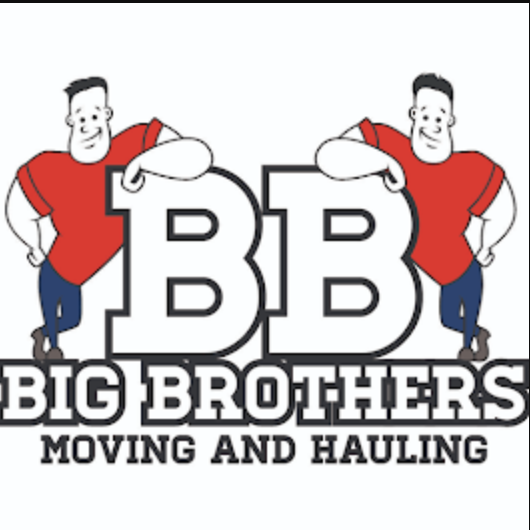Smooth Moves in the Garden State: Big Brothers Moving’s Proven Relocation Formula
Boonton, United States - October 8, 2025 / Moving Service Marketing Company /
Starting a new life in New Jersey? Whether you’re drawn to the bustling city life or the peaceful suburbs, moving can be an exciting yet overwhelming experience. As experts in home relocation, Big Brothers Moving & Hauling has mastered a recipe for smooth and stress-free moves to help you start your journey on the right foot. With their extensive knowledge of New Jersey’s local communities and neighborhoods, they will ensure a seamless transition. In this guide, they provide helpful tips and tricks to make your New Jersey home move a breeze.
Preparing for Your Move
Step-by-Step Preparation Guide
Step 1: Create a Moving Timeline
The first step toward a successful move is setting up a clear moving timeline. Think of it as a roadmap that keeps everything on track. Start by listing important dates, such as when to notify a landlord, schedule utility disconnections, or confirm moving day details. For long-distance relocations, remember to update and transfer important documents as early as possible.
This plan should also include smaller goals, such as when to start packing specific rooms, reserving a moving truck or professional movers, and setting aside time for last-minute cleaning or errands. A structured approach like this helps reduce last-minute stress and ensures that no task is forgotten. Having a detailed timeline serves as a personal assistant, keeping the moving process running smoothly and efficiently.
Step 2: Inventory and Declutter
After the timeline is set, the next step is to take inventory of belongings. This goes beyond just counting items—it’s about deciding what’s worth taking to the new home. As each room is reviewed, it helps to ask, “When was the last time I used this?” If it has been sitting unused for over a year, it may be better to sell, donate, or discard it.
According to the U.S. Census Bureau, Americans move roughly every five years, shedding around 1,000 pounds of belongings each time. Decluttering saves time, space, and moving costs. It also creates a sense of calm when unpacking in the new home. By letting go of unnecessary or emotionally draining items, homeowners can focus on keeping what truly adds value and comfort to their lives. A cleaner, simpler load leads to a much more manageable move.
Step 3: Secure Moving Supplies
Once items are sorted, it’s time to gather packing supplies. Ideally, these should be purchased or collected at least two weeks in advance of moving day to avoid last-minute errands. Typical needs for a three-bedroom home include about 50–70 sturdy boxes, 10 rolls of packing tape, several rolls of bubble wrap, and enough packing paper to protect fragile items.
Having all materials ready ahead of time makes the packing process smoother and more organized. When supplies are within reach, packing can be done at a steady pace, and the risk of damage is minimized. By completing these key steps — planning the schedule, organizing belongings, and gathering materials — anyone can approach the next stages of moving with confidence.
Essential Packing Materials
Gathering high-quality packing materials is not just a formality; it’s one of the most crucial steps in protecting your belongings. Knowing that fragile and sentimental items will arrive safely offers real peace of mind. To make this happen, investing in durable materials can make both packing and unpacking far easier.
Must-Have Packing Supplies
Sturdy Boxes of Various Sizes: Small boxes (1.5 cubic feet) are ideal for books or heavy items, medium boxes (3 cubic feet) are suitable for kitchenware, and large boxes (4.5 cubic feet) are perfect for bedding or lighter objects. Using durable boxes helps prevent breakage or crushing during transport.
Bubble Wrap and Packing Paper: These materials provide essential protection for fragile items. Bubble wrap shields glassware and ceramics, while packing paper fills gaps in boxes to prevent movement and protect contents.
Packing Tape and Dispenser: Reliable tape—about two inches wide and with strong adhesive strength—is essential for sealing boxes securely. A tape dispenser also saves time during packing.
Permanent Markers for Labeling: Labeling each box with its contents and destination room makes unpacking faster and more organized.
Plastic Bins for Fragile Items: Plastic bins are a stronger alternative to cardboard and can also serve as storage in the new home.
Furniture Covers and Moving Blankets: These protect furniture from scratches and dents, keeping everything in great shape during the move.
Specific Items for Specialty Packing
Delicate pieces like artwork, mirrors, or glassware need extra attention. Specialty boxes with reinforced corners and dividers help prevent breakage by separating and stabilizing fragile items, thereby protecting them from damage. Electronics should be wrapped in anti-static bubble wrap to protect them from damage caused by static electricity.
Although specialty materials might seem like an extra expense, they often prevent costly damage later on. Viewing these as an investment in safety and convenience makes the process more worthwhile. Using both general and specialty materials allows movers to protect their possessions effectively, setting the stage for a worry-free relocation.
Hiring Movers vs. Renting a Truck
Choosing between professional movers and a do-it-yourself move is one of the biggest decisions in any relocation. Both have advantages and drawbacks, and the best choice depends on budget, physical capability, and time.
The Pros and Cons
Hiring movers offers convenience and expertise. Professional teams handle the heavy lifting, loading, and unloading, and often offer packing and unpacking services as well. The American Moving & Storage Association estimates that professional moving costs range from $2,300 to $4,300 for local moves. While the cost may seem high, it often pays off in reduced stress and time saved.
However, this convenience means giving up some control. Professional movers may pack or load items differently than expected, and additional costs may apply for special services.
Renting a truck, on the other hand, is more affordable—typically between $100 and $300 for local moves. It allows complete control over how items are handled and loaded. However, moving independently requires significant physical effort, planning, and endurance. Lifting heavy boxes, maneuvering furniture, and navigating traffic can quickly become exhausting.
A middle-ground option is to rent a truck and hire local labor to assist with heavy lifting. This approach combines cost savings with professional assistance, reducing both physical strain and time spent.
In summary:
- Professional movers offer expertise but cost more.
- Renting a truck is often cheaper, but it requires more effort.
- A hybrid option can strike a balance between affordability and convenience.
Each option depends on personal preferences and available resources, but whichever route is chosen, proper planning is key to a smoother moving experience.
Moving Day Checklist
When moving day finally arrives, having a detailed checklist can make all the difference. It ensures nothing is forgotten and that the process stays organized from start to finish.
Before the Movers Arrive
Waking up early and reviewing the day’s plan is a great way to start. Doing a quick walkthrough of the home helps confirm that all items are packed and ready. Small, last-minute details, such as wrapping a fragile frame or setting aside documents, can prevent bigger problems later.
It’s also smart to make arrangements for children and pets. Keeping them away from the busy areas of the house can prevent stress and accidents during the move.
During the Move
While movers are loading, keep essential items, such as IDs, medications, and valuables, in a personal bag or box for easy access. This prevents the frustration of having to dig through packed boxes later. Keeping snacks and a change of clothes nearby can also help during a long moving day.
After the Movers Leave
Once the truck is loaded, perform a final check of the home. Make sure nothing is left behind and take pictures of the space, which can be helpful if issues arise later. With everything on its way, it’s time to focus on what comes next—getting comfortable in the new space.
Settling Into Your New Home
Adjusting to a new home takes time. It’s not just about unpacking boxes but creating a sense of comfort and belonging.
Step-by-Step Guide to Settling In
Step 1: Unpack Essentials First
Start with the most necessary items: kitchen and bathroom supplies. Setting these up right away allows daily routines to continue smoothly. Unpacking the basics first helps create a sense of normalcy and makes the rest of the unpacking less stressful.
Step 2: Make Your New Home Feel Like Home
Adding personal touches is what truly makes a new space feel like home. Family photos, favorite books, and familiar furniture all bring warmth and a sense of familiarity. According to a survey, 70% of people feel more at ease when surrounded by personal items. Simple touches like hanging a picture or arranging a favorite chair can quickly make a house feel lived in.
Step 3: Get Acquainted with the Neighborhood
Exploring the new neighborhood helps build a connection with the community. Taking walks, locating grocery stores, and discovering local parks can make the transition easier. Meeting neighbors and asking for local recommendations can lead to friendships and valuable insights about the area.
By connecting with the surroundings, new residents develop a sense of belonging and confidence in their new environment.
Tips for New Jersey Relocation
Relocating to New Jersey comes with its own set of local rules and customs. Learning these early helps new residents settle in faster and with fewer surprises.
Understanding the state’s toll roads and traffic laws is key. Keeping an E-ZPass or cash ready saves time when driving through toll areas. Also, New Jersey requires headlights to be on during rain or low visibility. And for newcomers, learning how to navigate the state’s unique “jug-handle” turns helps prevent confusion and fines.
Important Legal and Administrative Tasks
Within 60 days of moving, new residents should update their driver’s license and register their vehicle with the New Jersey Motor Vehicle Commission to avoid penalties. Handling these administrative steps early helps avoid stress later.
Joining community events or local clubs can also make settling in easier. Participating in local activities, volunteering, or joining a fitness center helps newcomers build connections and adapt to their new surroundings.
By getting familiar with New Jersey’s laws, culture, and neighborhoods, new residents can quickly feel at home and start building meaningful connections.
Moving to a new place like New Jersey can seem daunting, but with preparation, organization, and the right mindset, the process can be both manageable and rewarding. From planning the timeline to unpacking and meeting new neighbors, each step plays an important role in making the transition successful. By following the guidance and strategies that professionals like Big Brothers Moving recommend, newcomers can focus less on the stress of moving and more on the excitement of starting a new chapter in the Garden State.
Why Choose Big Brothers Moving for Your Next Move?
Choosing Big Brothers Moving & Hauling for your next move means partnering with a company that values trust, efficiency, and customer satisfaction above all else. Their experienced team understands that moving can be stressful, which is why they focus on making the entire process smooth and worry-free from start to finish. Whether it’s a local move or a long-distance relocation, Big Brothers Moving & Hauling provides reliable packing, secure transportation, and careful handling of every item. Their commitment to professionalism and attention to detail ensures that your belongings arrive safely and on time. If you’re planning a move soon, contact them today for a free quote and let their dedicated team make your relocation easy, efficient, and stress-free.

Contact Information:
Big Brothers Moving and Hauling
75 Grant St, Boonton, NJ 07005, USA
Boonton, NJ 07005
United States
Connor Wujciak
(973) 348-6659
https://bigbrothersmovingandhauling.com/



